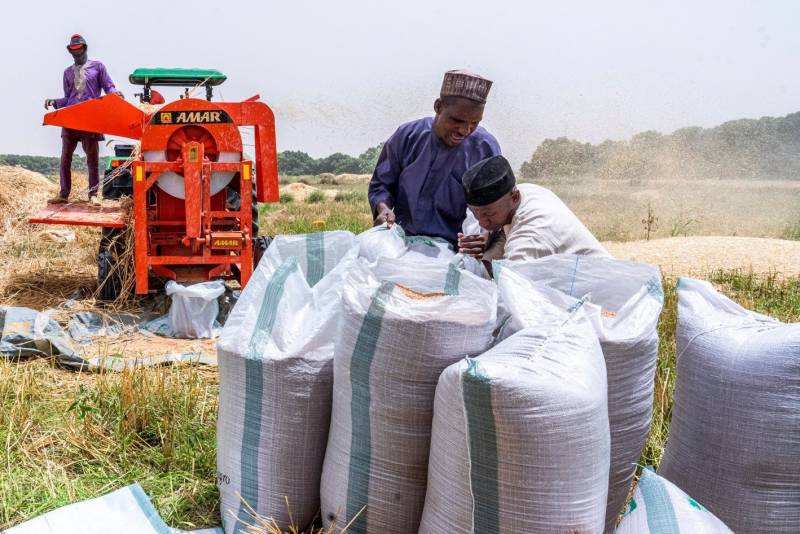Concerned about Nigeria's subpar wheat production, agricultural experts and other wheat value-chain stakeholders have revived the nation's goal of wheat optimization. Important goals included increasing annual wheat production from the current 150,000 hectares to 250,000 hectares. According to the National Bureau of Statistics (NBS), Nigeria spent N898.2 billion on wheat importation to meet its about 90 per cent consumption demand yearly. Although the Federal Government's intervention through the Central Bank of Nigeria (CBN) injection of N40 billion into wheat production resulted in an increase of 500,000 metric tonnes of local production in the year 2022 from 60,000 metric tonnes in the year 2020, the importation of the grain is still on the rise. However, the TAAT program of the African Development Bank (AfDB) is reinvigorating the target mantra with a focus on the production of high-quality seed varieties and increasing stakeholder capacity to meet the target.
The TAAT program coordinator, Dr. Chris Akem, stated that deliberate effort is being directed toward reviving Nigeria's potential in what production at the beginning of a two-day stakeholders' engagement workshop on the wheat seed sector. Concerning bottlenecks limiting the nation's potential for producing wheat, Akem noted that with renewed commitment and the implementation of the proper policies, Nigeria will not only catch up with Sudan and Ethiopia but also increase its production margin.
For his part, National Program Manager Aliyu Samaila of the Flour Milling Association of Nigeria (FMN) expressed confidence that Nigeria will achieve and even surpass the target for wheat production, assuming the right attitude and partnership of crucial stakeholders are ensured. According to Samaila, the country's future in wheat production is promising thanks to FMN's effects on manpower investment and development and technological investment in wheat production in seven states, which currently yields 3.2 tonnes per hectare. Given the significant gap in supply, Samaila said it might take some time to reduce wheat importation significantly. He believed farmers needed to be persuaded to adopt the proper mindset when it came to production. Munir Babba DanAgundi, chairman of the House Committee on Agricultural Institutions, pushed for increased financial and technical assistance for farmers to help them reach the goal.

“Nigeria has the potential to increase production and even catch up with Sudan and Ethiopia in production, if only we can address our challenges. Parts of the challenges are lack of political will, bureaucracy, and sometimes policy inconsistency.“A government can put up a policy that could be working fine and suddenly another government would surface and terminate that and introduce another policy. Now, what we are putting together now is to revive the target put in place two years ago to increase production with good agricultural activities, quality seeds and extending areas of production”, Akem noted.




